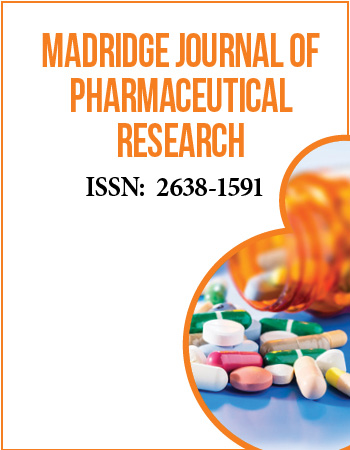International Conference on Medicinal and Pharmaceutical Chemistry
December 5-7, 2016 | Dubai, UAE
Integrated Plant Protection System (IPPS): A novel approach for developing safe and effective plant medicines
Gosling Research Institute for Plant Preservation, University of Guelph, Canada
Plant based medicine offers an exceptionally broad range of preventative and curative health-promoting benefits for many serious health conditions such as dementia, arthritis, cancer, cardiovascular disease, and diabetes. The synthesis and accumulation of medicinal metabolites is affected by plant genetics and environmental conditions of growth, processing and distribution, leading to enormous variability of active ingredients and poor quality of the products. Recent introduction of natural health product legislation is changing the ways in which natural health products (NHPs) are developed, manufactured, and marketed in worldwide. A range of evidences of safety, chemical consistency, and efficacy are now required for approval of all NHPs for release in the Canadian as well as US and European markets. This presentation will provide an overview of the challenges and the importance of controlled environment production to ensure product safety and efficacy of plant medicines. Integrated Plant Protection System (IPPS) is a cluster of technologies incorporating novel 3-D printed in vitro culture devices, smart bioreactors, growth chambers and greenhouses with efficient monitoring of environmental parameters and plant health for large-scale plant production. Melatonin rich plants with multiple therapeutic functions including the prevention of age-related neurological disorders will be used as a model to demonstrate the potential of IPPS to produce high quality plant based medicines. Melatonin is a mammalian neurohormone with multiple metabolic functions including neurotransmission and detoxification of reactive oxygen species. Also found in plants, melatonin and its precursor serotonin are believed to play a therapeutic role in sleep disorders, depression, Alzheimerʼs, Parkinsonʼs, and Huntingtonʼs diseases in addition to aging and cancer. The IPPS has facilitated our research on rapid detection and optimization of melatonin in a range of neurologically active medicinal plants such as Hypericum, Echinacea, Scutellaria, Datura, and Salvia, as well as the discovery of novel medicinal compounds. The IPPS integrated approaches may redefine the ways in which the future plant medicines will be developed, manufactured, and marketed.
Biography:
Praveen K Saxena is a Professor at the University of Guelph, Canada since 1989. The focus of research in Dr Saxenaʼs Lab has been on developing value- added products and production technologies for the Canadian agricultural and horticultural industries. Significant contributions of his research include the development of optimized production technologies for medicinal plants and the conservation and sustainable use of endangered plant species that are traditionally used in medicinal, religious, spiritual and cultural practices. Dr Saxena has contributed more than 170 research papers in peer reviewed journals, edited four books, and served as editor and reviewer for many journals. He has supervised over 50 graduate students, postdoctoral fellows and technical assistants. Dr. Saxena also teaches a number of courses in areas of Plant Propagation, Biotechnology, and Medicinal Plants. His other interests include exploring the role of yoga and spirituality in human health. As the director of the Gosling Research Institute for Plant Preservation (GRIPP), Dr. Saxena manages research and teaching activities for GRIPP as well as industry collaborations, through national and international collaborations on the use of biotechnologies for plant conservation and commercial propagation.


